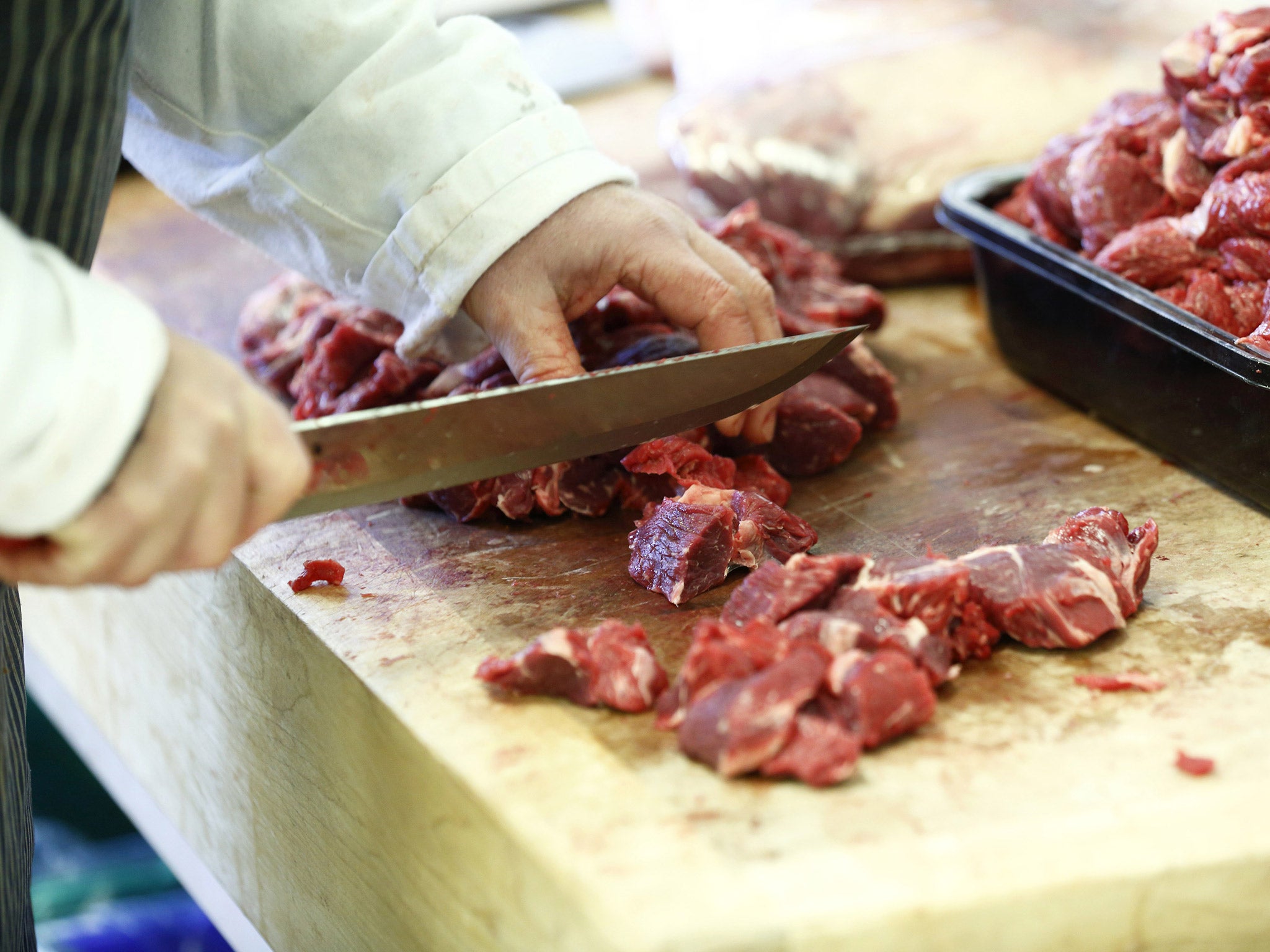Climate change: Meat industry 'creates same amount of greenhouse gases as all the vehicles in the world'
The industry accounts for 15 per cent of all greenhouse gas emissions, according to Chatham House

Your support helps us to tell the story
From reproductive rights to climate change to Big Tech, The Independent is on the ground when the story is developing. Whether it's investigating the financials of Elon Musk's pro-Trump PAC or producing our latest documentary, 'The A Word', which shines a light on the American women fighting for reproductive rights, we know how important it is to parse out the facts from the messaging.
At such a critical moment in US history, we need reporters on the ground. Your donation allows us to keep sending journalists to speak to both sides of the story.
The Independent is trusted by Americans across the entire political spectrum. And unlike many other quality news outlets, we choose not to lock Americans out of our reporting and analysis with paywalls. We believe quality journalism should be available to everyone, paid for by those who can afford it.
Your support makes all the difference.The meat industry creates the same amount of greenhouses gases as all the vehicles in the world, but people could help just by deciding to eat better meats.
The industry accounts for 15 per cent of all greenhouse gas emissions, according to international affairs thinktank Chatham House.
In just a few days, more than 130 world leaders will attend the Paris Climate Change Conference to agree on a strategy to keep climate change below the ‘danger level’ of 2C. According to a report from Chatham House, up to a quarter of the reductions in emissions needed to achieve this can be made simply by eating less meat.
The report also showed the production of beef and ruminant meat like lamb emitted the most CO2 per gram of protein, while non-meat protein sources like soy and eggs emitted the least.
The average person needs around 50 grams of protein per day, but the report shows that getting this protein from soy products instead of beef could reduce daily carbon emissions by 12.16kg of CO2, the equivalent of 5 litres of petrol.
Chatham House urges governments to intervene in order to reduce meat consumption and limit climate change and “establish international norms for a sustainable, healthy diet”. The report encourages increased availability of meat alternative products as well as offering financial incentives to switch to these products such as raising the price of meat or introducing a carbon tax.
Join our commenting forum
Join thought-provoking conversations, follow other Independent readers and see their replies
Comments